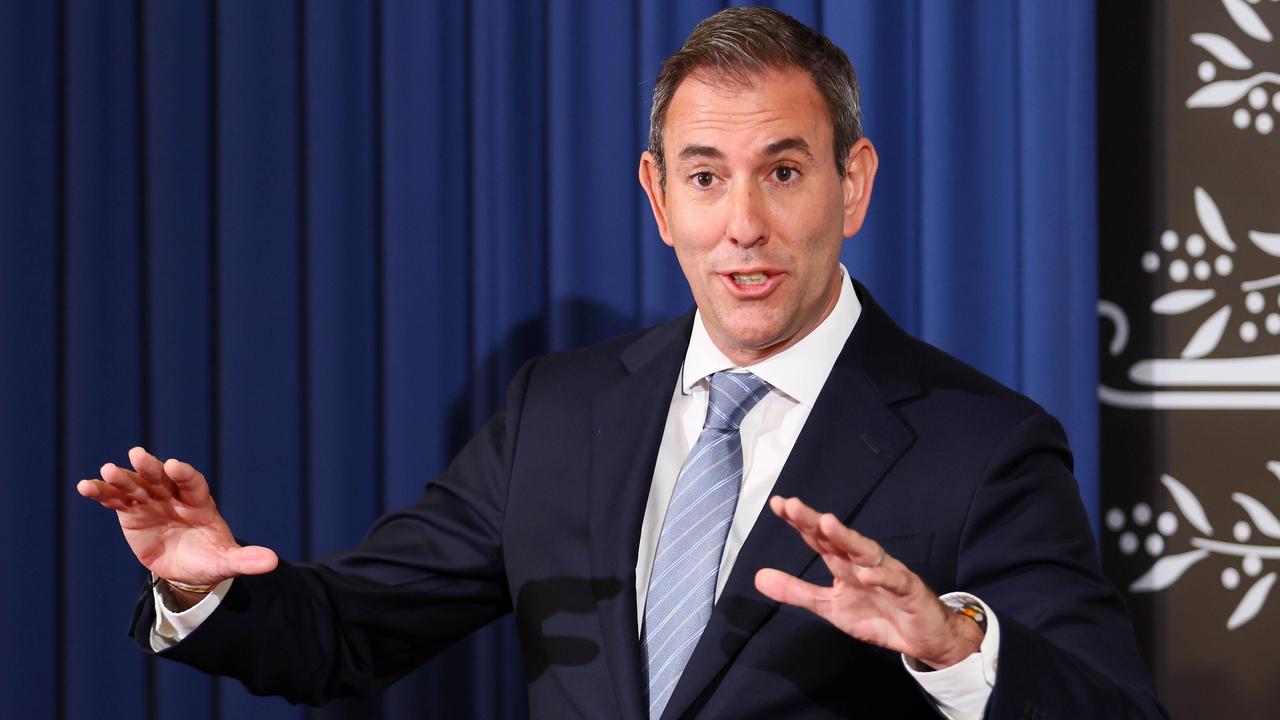What’s really in the Federal Budget 2018 fine print
IT’S time to go deep. From sin taxes to super, education and environment, here’s a section-by-section overview of the Federal Budget.
Federal Budget
Don't miss out on the headlines from Federal Budget. Followed categories will be added to My News.
TIME to go deep. From sin taxes to superannuation, education to environment, here’s the section-by-section overview of the Federal Budget.
News Corp’s team of specialist reporters bring you the expert rundown with everything you need to know from each sector.
JUMP TO: BUDGET AND THE BLACK ECONOMY
JUMP TO: BUDGET AND SUPERANNUATION
JUMP TO : BUDGET AND NATIONAL SECURITY
JUMP TO: BUDGET AND WELFARE CHEATS
JUMP TO : BUDGET AND OLDER AUSTRALIANS
JUMP TO : BUDGET AND REAL ESTATE
JUMP TO : BUDGET AND SIN TAXES
BUDGET AND THE BLACK ECONOMY
Sophie Elsworth
A MAJOR crackdown on the black economy will stop Australians using large wads of cash to pay and catch out those cheating their tax liabilities.
A beefed up multi-agency Black Economy Standing Taskforce will be rolled out which will include mobile strike teams and increased intelligence to detect those rorting the system.
The moves are expected to deliver revenue of $5.3 billion over the next four years.
This will involve a tougher stance on taxable reporting, stings on illegal tobacco and increased policing by the Australian Taxation Office.

In a bid to stamp out tax avoidance and money laundering, the government will put a limit on cash payments of up to $10,000 made to businesses for goods and services from July 1 next year.
The move will help put a stop to businesses trying to hide transactions and reduce their tax implications.
Transactions of more than $10,000 must be made electronically so they can be tracked or via the old-fashioned payment method, the cheque.
This will not apply to transactions made with financial institutions or consumer to consumer non-business transactions.
And a new black economy hotline will also be set up to allow people to dob in anyone making under-the-table transactions.
The government has described the booming black economy as “complex, costly and growing” and one that is doing serious harm to the nation’s tax system.
More than $318 million will be pumped into strategies over the next four years to help tackle widespread tax avoidance.
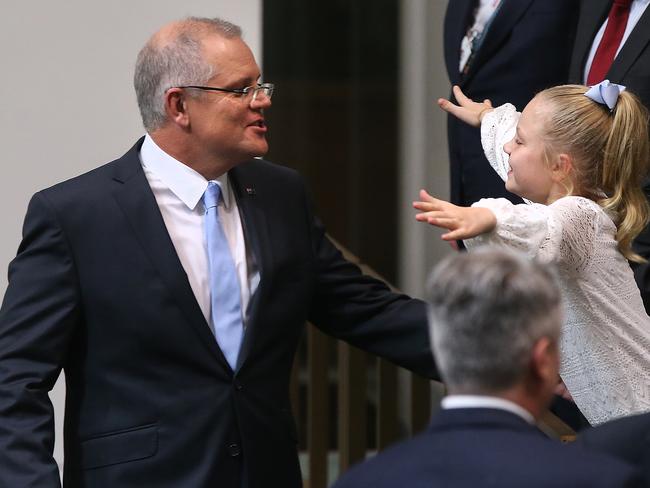
Businesses will also no longer be allowed to claim deductions for payments to their employees such as wages where they have not held back any amount of PAYG.
The Black Economy Taskforce was set up in 2016 and they recently made their final recommendations in a report to Government on how to put the brakes on illegal transacting.
The ATO will boost its comprehensive data analytics and data matching capabilities to catch out cheats.

Industries who will also come under increased scrutiny will include security providers and investigation services, road freight transport and computer system design and related services.
Tax agents will also come under be under close watch with additional funding given to the Tax Practitioners Board to take action again any those who are facilitating the black economy.
Australian Business Numbers (ABNs) will also be strengthened by the Taskforce to help improve the identity and legitimacy of businesses.
There will also be an Illicit Tobacco Taskforce to investigate, prosecute and dismantle organised crime groups involved with illicit tobacco.
And anti-phoenixing measures will also be introduced to prevent small businesses being ripped off by other businesses and avoid paying their bills.
MORE: The Federal Budget explained in five minutes
BUDGET AND SUPERANNUATION
Anthony Keane

BILLIONS of extra dollars are set to flow into the superannuation accounts of Australians in a big brother approach to protect them from rip-offs, wastage and losses.
The Federal Government is empowering the Australian Taxation Office to use its sophisticated data matching technology to proactively reunite people with their lost super funds.
This is expected to gift back $6 billion to three million super fund members by 2020.
It also is changing the way life insurance in super is charged, making it opt-in for people aged under 25 and for inactive and low-balance super accounts.
This is estimated to potentially save five million people about $3 billion, and follows a similar move by one of the nation’s biggest funds, AustralianSuper.
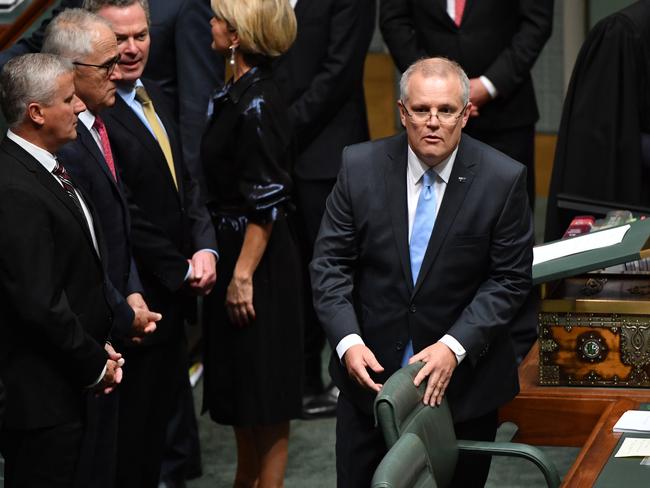
Exit fees that slug savers when they switch super funds will be banned, and the government will stop fee erosion in accounts with less than $6000 by limiting administration and investment fees charged in them to 3 per cent.
In total, the new measures are expected to send up to $9.6 billion back into the active super accounts of Aussie savers when they start in July 2019.
Minister for Revenue and Financial Services Kelly O’Dwyer said average fees charged in some low-balance super accounts were 9 per cent.
“Protecting low balance accounts is really critical,” Ms O’Dwyer said.
“It’s not going to make me popular with these funds, but it’s the right thing to do.”
Australians have historically ignored super until later in life, robbing them of the chance for their savings to compound massively over many decades because they have several small accounts all charging fees or are paying for insurance they don’t need.
“Super funds need to keep their fees and charges low, and haven’t really had a lot of scrutiny,” Ms O’Dwyer said.
The new package is the tenth consecutive year of rule changes to superannuation but unlike some of the tougher measures of previous years it will be positive for many people.
The government estimates that Australians have about 13 million super fund accounts that are inactive of have balances below $6000 — representing more than half of all super accounts.
MORE: Federal Budget 2018: All the winners ... and losers
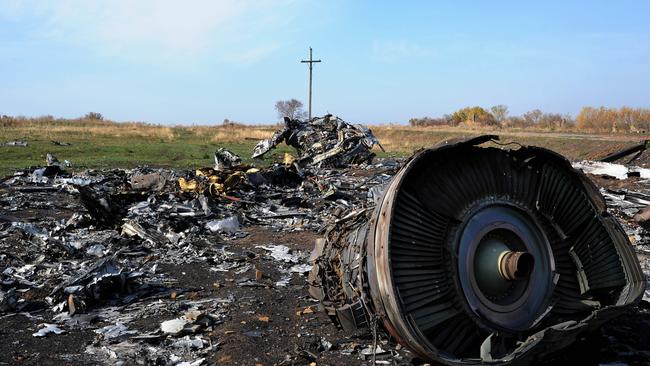
BUDGET AND MH17
Charles Miranda
THE Government has set aside more than $50 million to prosecute Russia for its involvement in the downing of Malaysian Airlines flight MH17 over Ukraine in 2014 that killed 298 people including 38 Australian citizens.
The criminal investigation into the downing of the airline is yet to be completed but the Federal Government has budgeted over the next four years to assist in the prosecution of perpetrators through the international criminal court in The Hague.
A preliminary report of the downing of the airline on July 17, 2014 over east Ukraine, found the cause was a Russian manufactured missile fired from territory held by Russian-backed Ukrainian militia. The second more critical half of the Joint Investigations Team (JIT) probe which involves the Australian Federal Police was expected to report two years ago but has been delayed several times by emerging new but conflicting evidence.
It is largely expected however to conclude that Russia supplied the armament and technological capability and training for the rag tag militia group to fire the deadly rocket believing the airline was a military aircraft involved in the secessionist war.
The $50.3 million funding over four years is to go toward the legal costs of prosecution as well as costs to assist family members of the victims who called Australia home to travel to The Netherlands to participate in proceedings. The budget will also support the newly opened Australian embassy in Ukraine capital Kiev.
Late last year Foreign Minister Julie Bishop announced Australia would join Malaysia, The Netherlands and Belgium in pursuing legal justice.
BUDGET AND NATIONAL SECURITY
Charles Miranda
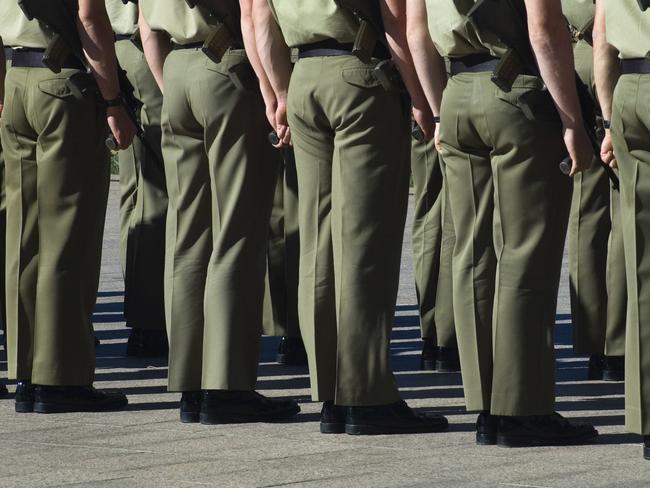
A TERROR plot to bring down an airline over Australian skies last July has led to a significant $300 million budget boost to Australian national security on land, sea and air including more troops to deploy to air hubs and tighter passenger security screening.
The newly created Home Affairs super ministry has flagged a dozen new security initiatives including airport screening upgrades, offshore crime fighting operations, more spies, advances to postal and cargo screening and CCTV cameras in our communities
The alleged plot to bring down an Etihad plane flying out of Sydney Airport en route to Dubai last July has been cited as behind the almost $300 million budget boost over four years. The plot involving explosives packed into a meat grinder and a Barbie doll being carried as hand luggage onto the airline flight is seen as the closest Australia has ever come to a successful terrorist attack and was detected largely only through luck. Investigations are continuing and at least three people are expected to face court.
Airports and aviation security tops the package with $121.9 million for the deployment of 140 additional Australian Federal Police counter terrorist first response officers and 50 intelligence agents at nine major domestic and international airports.
About the same amount over four years is also to be spent on new screening technology at air cargo and international postal operations at Clyde in Sydney’s west, Melbourne, Brisbane and Perth.
Also new from this year will be a dedicated budget to fight crime overseas through the expansion of the Australian Border Force Airline Liaison Officers program, deploying officers to 19 offshore airports for better passenger screening; in the past five years 1000 passengers attempted to enter Australia as either an impostor, on a fact passport or as a security threat.
Our overseas Australian Secret Intelligence Service (ASIS) spies will also receive a funding boost.
The government also plans to establish an anti slavery child exploitation unit and under its Safer Communities Fund, $30 million made available to identified councils for CCTV, better street lighting and bollard security with the moneys coming from criminal asset seizures.
BUDGET AND WELFARE CHEATS
Lanai Scarr
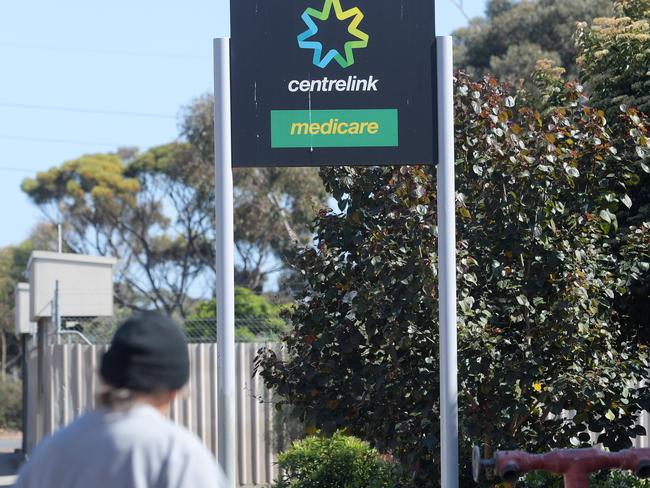
A crackdown on welfare cheats will save the government close to $300 million over three years by extending fraud detection and debt recovery activities.
From July 1 2019, the Department of Human Services will focus debt recovery on ex-welfare recipients with high value debts in excess of $10,000.
This could have been accrued by the welfare recipient not estimating their income accurately or claiming for payments they were not legally entitled to.
Until now, ex-recipients who had been overpaid welfare had often escaped scrutiny due to falling off the system and/or changing addresses.
But the government is getting tough on welfare sponges who are keeping the budget in the black.
A total of $154 million will be saved in cash over the three years from 2019-20 on debt recovery.
The Department of Human Services will also team up with the Australian Taxation Office to crack down on income data that is not matched between the departments.
Or in other words current welfare recipients who are underestimating their income.
A further $124 million in cash will be saved via income matching from July 1, 2021.
The remaining 21.3 million will be saved in debt calculated within the three years and on payment plans but not fully repaid.
The measures build on previous measures to improve welfare payment integrity and the savings will be redirected by the government to repair the Budget and fund policy priorities.
Tip-offs about welfare cheats have helped the federal government find more than
$100 million worth of fraudulent claims in the last five years.
Half a million Australians have contacted the Department of Human Services to
dob someone in since 2013, the coalition revealed last week.
The department has already received nearly 80,000 tip-offs this financial year.
MORE: Here’s what the Federal Budget means for you
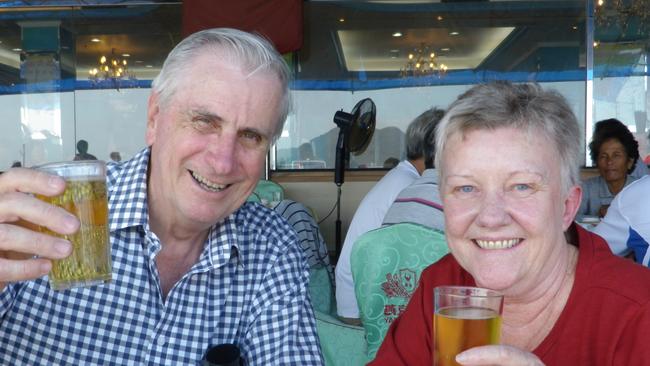
BUDGET AND OLDER AUSTRALIANS
Anthony Keane
Older Australians looking to stay in the workforce are set to benefit from wage subsidies of up to $10,000 paid to employers who want to give them a go.
Up to 30,000 jobseekers are likely to benefit from the move, the government says, which is part of a wide range of seniors’ giveaways announced last night that also span aged care, pensions and work bonuses.
Almost $190 million will be spent on jobs and skills measures for mature workers.
Treasurer Scott Morrisson said the government wanted to back the choices of older Australians who chose to remain working.
“This will be done by supporting them to transition their skills, providing wage subsidies of up to $10,000 for employers who take them on, and combat age discrimination in the workforce,” he said.
“Access to the Restart wage subsidy will be expanded for Australians aged over 50.”
Wage subsidies will be provided through jobactive.gov.au and other government employment services, and will be paid to employers over a six-month period. Both bosses and jobseekers — such as those receiving unemployment benefits — will need to qualify.
The Government, as foreshadowed, also said it would pump $1.6 billion into providing an extra 14,000 high-level home care packages for seniors who want to remain in their homes rather than move into nursing homes.
These home care packages are worth up to $50,000 a year for retirees who can use them to pay for things such as meals, household chores and health services, and there have been long waiting lists of more than 100,000 people.
Mr Morrison said the government was reforming the aged care system to deliver what the community wanted and to “guarantee and respect the dignity of older Australians”.
The funding for extra home care packages follows 6000 packages released late last year in response to soaring demand.
Pensioners who work part-time will get more in their pockets as the government increases its Pension Work Bonus to allow them to earn an extra $25 a week — or $1300 a year — from employment without affecting their pension payments. It is also being extended to self-employed people and allows senior workers to earn up to $7800 annually free of pension income tests.
The Pension Loans Scheme is being expanded to cover all people over pension age — including self-funded retirees. This government backed reverse mortgage scheme will allow retired couples to boost their income by up to $17,800, without impacting their age pension eligibility, by dipping into the equity stored in their home.
Mr Morrison’s retirement bag of goodies strengthens the battlelines ahead of the next federal election after Labor’s recent announcement that it would scrap tax refunds from share dividends. “We will oppose unfair tax grabs on retirees and pensioners by enabling everyone who has invested in Australian companies that issue franked dividends, to keep their tas refunds.
BUDGET AND REAL ESTATE
Aidan Devine

Fears this year’s Federal Budget would include changes to negative gearing or capital gains tax have proved unfounded and Treasurer Scott Morrison has instead taken a largely hands off approach to the housing market.
The Budget offered little in the way of major announcements for homeowners, investors or prospective buyers, with much of the real estate focus on measures to better increase housing supply.
The lack of major property tax changes suggested the Government felt confident last year’s measures to crack down on investment activity and foreign spending had the desired affect of calming home prices, particularly in Sydney and Melbourne.
Median home prices have fallen for the last nine months in Sydney and the last five in Melbourne, the latest CoreLogic research showed.
By leaving the current property taxing system largely untouched, Mr Morrison would have calmed the concerns of much of the real estate and development industry, who had feared the government might cave into strong pressure to overhaul negative gearing.
Mr Morrison offered another surprise by leaving capital gains charges untouched instead offering other measures to boost housing supply — a key determinant of prices.
This included a commitment to establish the $1 billion National Housing Finance and Investment Corporation and release more land suitable for housing.
The Budget’s allocation of billions of dollars in transport infrastructure upgrades would also help unlock cheaper housing in further-flung regional areas by making them more accessible, according to realestate.com.au chief economist Nerida Conisbee.
BUDGET AND SIN TAXES
Sophie Elsworth

THE illicit tobacco industry will come under increased scrutiny in a bid to claw back $3.6 billion over the next four years.
At the heart of the program is a crackdown on the smuggling, leakage from licensed warehouses and the domestic production of illegal tobacco.
From July 1 this year the Illicit Tobacco Task Force will be created to strengthen law enforcement and border security agencies to catch out criminals.
Increased resources will be used alongside the Australian Border Force Tobacco Strike Team which will allow for increased powers to clampdown on illegal trade.
This includes targeting, disrupting and prosecuting serious and organised crime gangs involved in transacting illicit tobacco.
Resources at The Australian Taxation Office will also be increased to help detect and consequently destroy domestically-grown illicit tobacco crops.
Permits will also be required for all tobacco imports except those that fall with duty-free limitations.
Collecting tobacco liabilities and taxes at the border will begin from July 1 next year and all importers must pay all duty and tax liabilities.
This will change from the existing system which allows importers to store tobacco products in licensed warehouses before they are required to meet their tax obligations.
During a 12-month transition period of the tax requirements changing, tobacco traders will have one year to cough up payments on any tobacco stored in warehouses.
Meanwhile the alcohol industry will also be given some financial relief — the government will increase the alcohol excise refund scheme cap to $100,000 per financial year.
This is an increase from a previous cap of $30,000.
BUDGET AND HEALTH
Sue Dunlevy

A CRADLE to the grave health plan outlined in the budget will see newborns given rare disease checks and a digital health record from birth while the elderly will get mental health and exercise help.
The existing paper based blue book that records a child’s growth and weight trajectory, their health milestones and immunisation will move into the 21st century to be replaced with a new digital record.
Experts have warned babies born today are at risk of dying before their parents because of diseases caused by diet lifestyle and the budget directs $78 million at programs in the first 2,000 days of life.
Mums will get advice on healthy diet and exercise habits during pregnancy and what to feed their babies as well as free whopping cough vaccines.
Under a groundbreaking $500 million genomic health program cancer patients and children with rare diseases will get access to genetic testing to help 200,000 Australians live longer.
There will be preconception screening for rare and debilitating diseases like Spinal Muscular Atrophy, Fragile X and Cystic fibrosis.
Areas with low childhood immunisation rates such as the far north coast of NSW and Sydney’s Northern beaches will be targeted and $17.5 million will be spent on maternal and infant health research.
At the other end of life elderly people living in aged care homes will for the first time be able to access mental health care under an $82 million program to be co-ordinated by local Primary Health Networks.
Older Australians living in the community who suffer social isolation will get help under a $20 million pilot program run by nurses.
Older Australians will be able to access palliative care in residential aged care homes under a $32 million initiative.
And $5.3 million will help develop technological solutions for people with dementia.
Under other budget measures Australians will be encouraged onto generic versions of their medicines to save $335 million under budget cuts.
New electronic prescription software will assign a person to a generic brand of medicine by default and doctors will have to override the system if they want patients to use their brand name drugs.
There will be $190 million worth of cutbacks to Medicare rebates for knee scans, spinal surgery and mesh used in gynaecological surgery.
New tests and treatments will be funded for people with cystic fibrosis, overactive bladders and men who need to preserve semen because of toxic treatments.
Over $700 million in funding has been provided for a life saving extending breast cancer medicine Kisquali bringing the cost down from $71,820 a year to just $39.40.
More than $240 million will be spent on clinical trials for treatments for rare cancers, rare diseases and diseases with unmet needs.
BUDGET AND SPORT
Lanai Scarr

Tackling our growing obesity crisis through sport is a key centrepoint of this year’s federal budget with $154.3 million being pledged over five years to get Australians, particularly kids, more physically active.
A total of $41.7 million of that cash will be directly for the Sporting Schools Program to expand to a total of 5200 primary schools and 500 secondary schools to provide free sport based activities for students.
The Coalition will also provide $4 million to Football Federation Australia (FFA) to assist in preparing a bid for the 2023 FIFA Women’s World Cup.
A measure that is set to outrage some in the sport sector due to FIFA’s well-documented corruption allegations in the bidding process.
Moves to keep our athletes clean will also see $10.1 million in 2018-19 for improved anti-doping and testing.
A total of $28.9 million will be provided over four years from 2018-19 in the federal budget to assist national sporting organisations to increase participation in sport.
Another $11.8 million has been flagged to expand the existing Local Sporting Champions program to support young Australians to participate in state, national and international sporting championships and $3.4 million is slated for a continuation of the AusPlay participation survey to improve understanding of the activity habits of Australians.
A further $6.3 million is also being rolled out to develop the Safe Sports Australia program and a national sports injury database to improve the safety of sports participation by young people.
Almost $30 million will be spent in 2018-19 to deliver up to 500 local community sporting infrastructure development grants of up to $500,000 to improve community sporting facilities.
News Corp Australia last week revealed reveal the latest data on kids participation in sport which showed in 2017, 3.5 million children aged 15 and under (74 per cent) participated in some organised sport or physical activity outside school hours, compared with 3.2 million (70 per cent) in 2016.
But while there was a jump in participation, 55 per cent of kids aged 12-14 still either don’t like physical activity or see it as a priority, this falls to 25 per cent of 9-11-year-olds and 18 per cent of 5-8-year-olds.
And although participation increased in 2017, kid’s waistlines are continuing to grow, with one in three children expected to be obese by 2028, according to Obesity Australia.
In 2017 Australian parents spent $2.1 billion on organised children’s sport and physical activity outside school hours last year.
The most expensive sports nationally were dancing, taekwondo and gymnastics.
Also cricket lovers have won the toss in the budget with the government gifting a massive tax break to a subsidiary of the International Cricket Council to help it stage the ICC World Twenty20 in Australia in 2020.
The company will get a five-year income tax exemption.
It will also get an exemption from interest, dividend and royalty withholding tax liabilities for five years.
The tax break won’t cost the government anything but the tax revenue would have been a tidy windfall.
BUDGET AND ENERGY
Sophie Elsworth
Household energy bills will drop by an average of $400 by 2020 and consumers will be able to more easily compare retailers to get better deals.
The Government said consumers should be able to safely share their personal data with comparison services to help them closely examine the deals available and score better discounts to save.
The Government will spend $37.6 million over five years to help improve affordability, reliability and sustainability in the energy sector.
They will also continue their work with major electricity retailers to ensure consumers they are getting the best deals possible.
The Australian Energy Market Commission will also crackdown on misleading discounting practices by electricity retailers that often leads to consumers’ becoming confused about the charges they are paying.
The consumer watchdog, the Australian Competition and Consumer Commission, will also continue its focus on the competitiveness of both the electricity and gas markets.
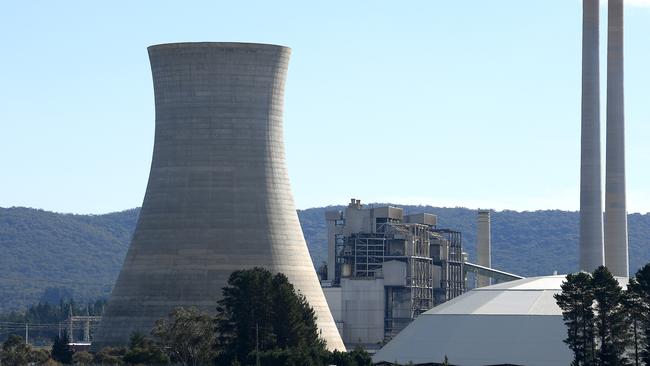
In the past year the ACCC has released a preliminary report on the electricity sector and three interim reports on the gas market.
The Government has also been focused on ensuring Australians have access to domestic gas supplies before any gas is exported overseas.
The Government has also reached an agreement with both Victoria and NSW to take over full ownership of the Snowy Hydro.
This will provide 2000 megawatts of extra electricity and provide enough power for 500,000 homes per week.
The Government said they will continue their emissions reduction target at 26-28 per cent — not the 45 per cent campaigned for by the Opposition.
They said they will not adopt the 50 per cent renewable energy target — another policy pushed by the Opposition.
The existing energy subsidy scheme will also be phased out form 2020 when the renewable energy target will be met.
TECH PACKAGE
Jennifer Dudley-Nicholson
IT sounds like a science-fiction wishlist but the Federal Government has revealed a $2.4 billion plan to upgrade two supercomputers, set artificial intelligence guidelines, introduce GPS technology accurate within 3cm and create a national space agency.
The unprecedented technology package, covering a mixed bag of cutting-edge innovation and upgrades to existing technology, will be rolled out over the next 12 years, and represented an significant investment in “Australia’s public technology infrastructure,” Treasurer Scott Morrison said.
The package included $1.9 billion for the National Collaborative Research Infrastructure Strategy, which would spread the funding to projects including upgrading two super computers based in Perth and Canberra, and creating new ethical guidelines for the responsible creation of artificially intelligent technology.
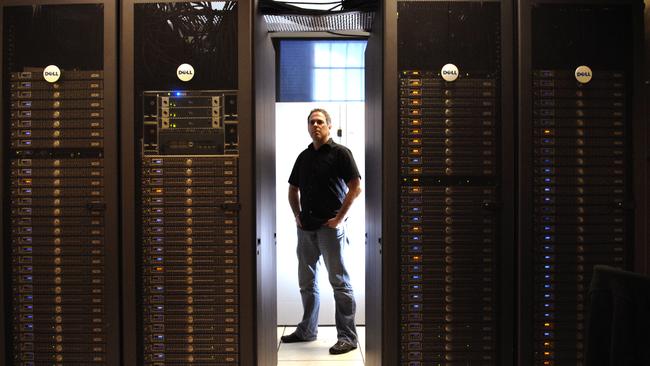
The supercomputers could be used for breakthroughs in areas as diverse as medical research, nanotechnology, and urban planning, budget documents revealed, and similar research facilities had previously been used in “the development of cervical cancer vaccines and breakthroughs in quantum computing”.
Artificial intelligence and machine-learning technology research would also get a $29.9 million boost in the Budget for the development of a standards framework, road map, and an “AI Ethics Framework” to “support the responsible development of these technologies”.
The multibillion-dollar package also included funding for Australia’s much-discussed National Space Agency, although it only secured $26 million over the next four years, with a further $15 million over three years to establish an International Space Investment project for grants.
A much larger investment of $224.9 million would go towards a bold project to enhance Australia’s satellite-based, positional, navigation, and timing (PNT) capability, that would let GPS users pinpoint a location to within mere centimetres.
“This measure will deliver PNT data with an accuracy of three to five centimetres for regional and metropolitan areas with mobile phone coverage, and up to 10cm elsewhere,” the Budget papers revealed.
EDUCATION
Lanai Scarr
THE National Schools Chaplaincy program will have a special new anti-bullying focus as part of $247 million in renewed funding for the area.
School chaplains will be directed to focus their support on anti-bullying in an effort to rein in the scourge that is killing our children.
A total of $247 million over four years from 2018-19 in new funding for school chaplains was announced as part of last night’s federal budget, but detail on how the anti-bullying message will work or be rolled out has not been revealed.
The School Chaplaincy Program supports the wellbeing of students and school communities through the provision of pastoral care services and other support services.
It began during John Howard’s prime ministership and has focused on various things during its 12-year history.
Combating bullying, and particularly cyberbullying, has been a key focus for the government, particularly in the wake of Amy “Dolly” Everett’s suicide.
News Corp Last week revealed 15 per cent of 8- to 12-year-olds received threats or abuse online in the 12 months to June 2017, and this increased to 26 per cent for teens. Twelve per cent of 8- to 12-year-olds felt they had suffered significant reputational damage as a result of cyber abuse and bullying, as did 25 per cent of teens.
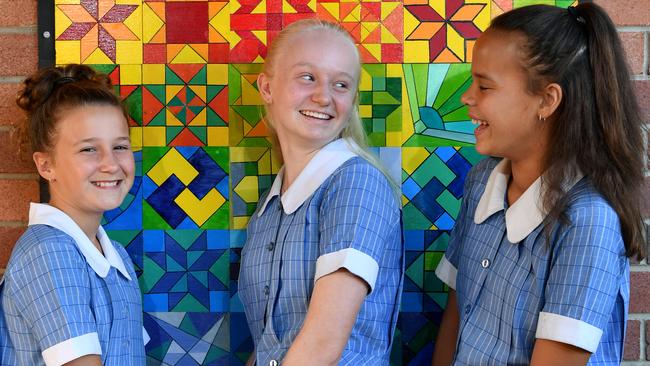
The funding to focus on anti-bullying support for our kids comes as the federal government agreed to back universal access to preschool/kindy for another year by injecting another $440 million to the sector.
But consideration of three-year-old kindy — two years before school — was overlooked.
There was also a boost in last night’s budget for kids from the country to have an easier time attending university away from home with the government to relax the Youth Allowance Parental Income Test.
A total of $53.9 million over four years from 2018-19 was revealed in last night’s budget to improve regional students’ access to Youth Allowance by changing the threshold and assessment year for parental income.

